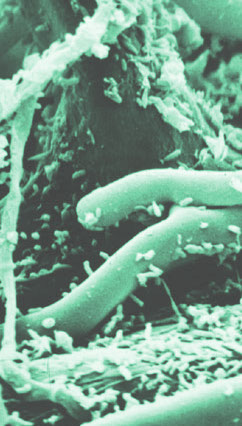Antibiotic resistance raised
 Australian experts say they are “deeply concerned” by the death of an American woman from an untreatable infection with a antibiotic-resistant bacterium.
Australian experts say they are “deeply concerned” by the death of an American woman from an untreatable infection with a antibiotic-resistant bacterium.
Professor Cheryl Jones, President of the Australasian Society for Infectious Diseases (ASID), says the woman’s death “may herald a postantibiotic era in which high level antimicrobial resistance (AMR) is widespread, meaning that common pathogens will be untreatable”.
“Should this be the case, it would profoundly affect all areas of health care, and society,” Professor Jones and her co-authors wrote in an editorial for the Medical Journal of Australia.
“Simple childhood infections would once again be life-threatening events, major surgery would be associated with high mortality, chemotherapy for cancer and organ transplantation would no longer be possible.”
The Australian Government had been proactive in its response to AMR, with the formation of the Australian AMR Prevention and Containment Steering Group, followed by the release of the first National AMR strategy in June 2015.
However, Professor Jones wrote, the challenge was to translate the plan into a road map to life-saving action.
“The per capita consumption of antibiotics by people in Australia is among the highest in the world. Australian prescribers and consumers need to reduce antibiotic use in both humans and animals,” she wrote.
“To have an impact on AMR, we will need to address all its drivers in Australia in humans, animals and agriculture.
“These are not only unrestrained use of antibiotics but poor infection control, the decline of antibiotic and diagnostic research and development, and the introduction of AMR into Australia through international travel or from ingestion of imported food products that may contain AMR organisms (eg, seafood and meat), particularly if antibiotics were employed during their production. We also need to better define the impact of AMR through coordinated national surveillance and communicate the impact of AMR infections to our community.
“A list of tangible actions against each of the drivers of AMR, coordinated across human and animal health and agriculture, must be an urgent priority. The ASID, the Australian Society for Antimicrobials, and animal health societies will host government representatives and stakeholders in June 2017 at the second Australian AMR Summit in Melbourne, with the aim of drafting this action list.”








 Print
Print